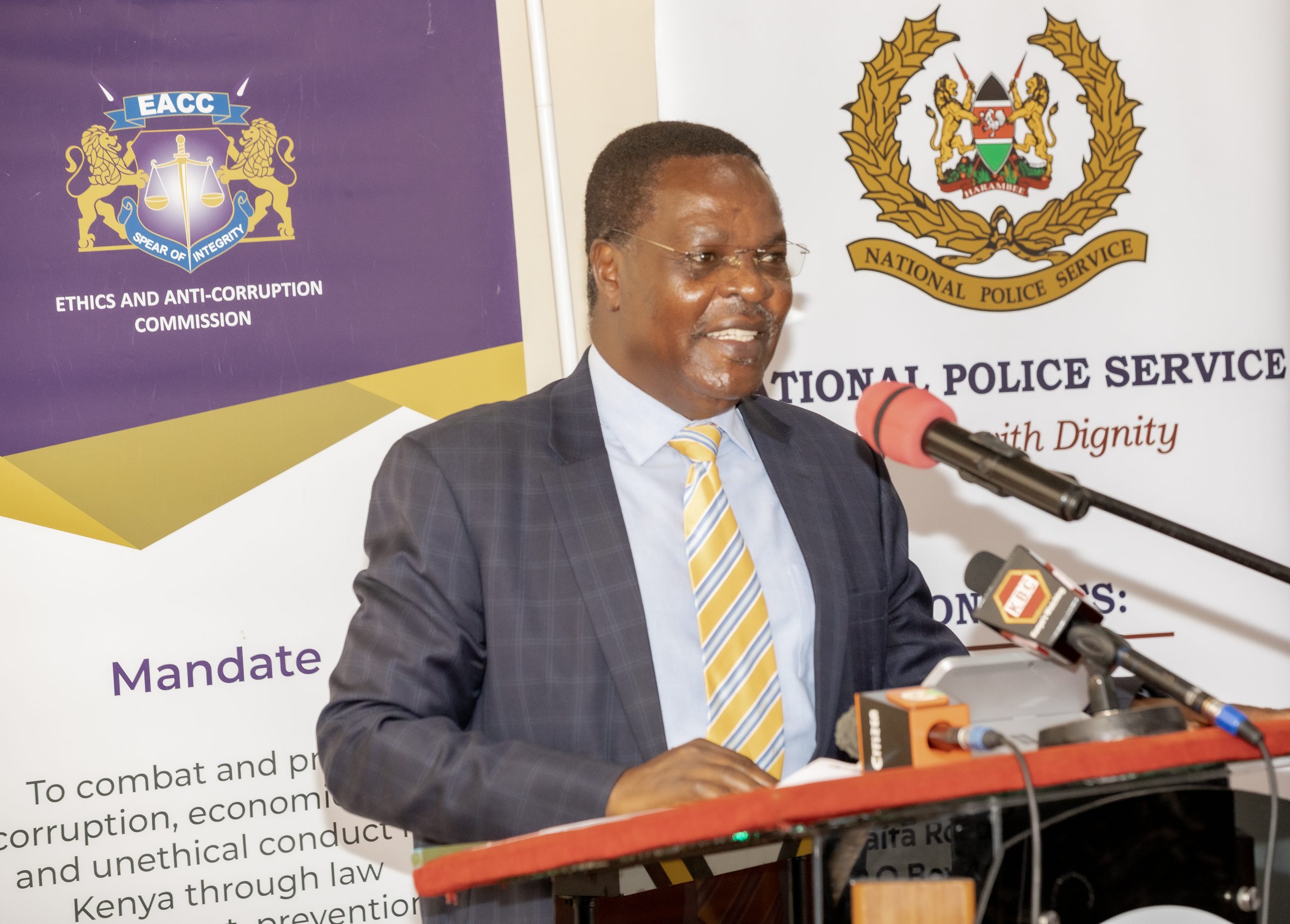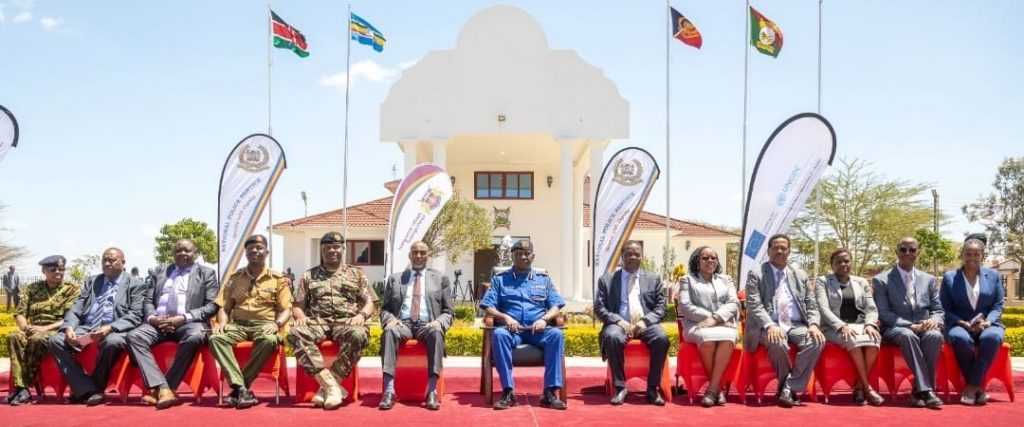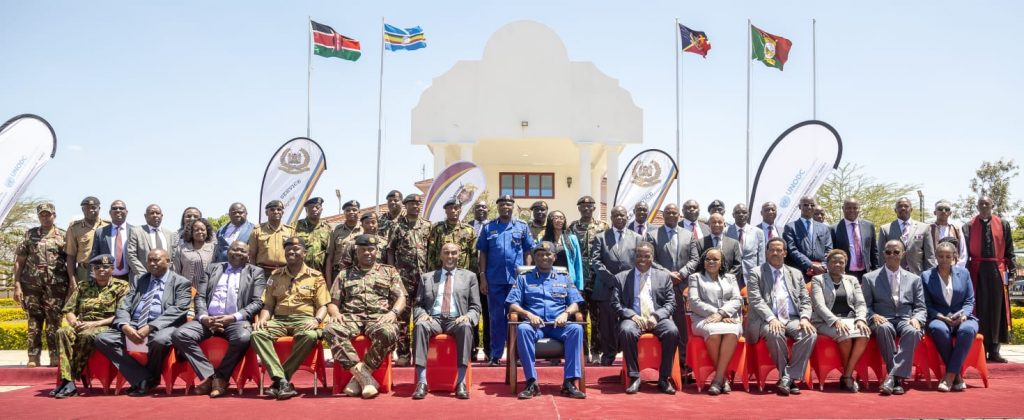EACC to review operational systems of the National Police Service to improve delivery and tame graft

10:02:2025: The Ethics and Anti-Corruption Commission (EACC) has today launched an Examination into the Systems, Policies, Procedures, and Practices of Work of the National Police Service (NPS) to tame corruption.
The system audit exercise aims to identify and address systemic weaknesses and loopholes that encourage corruption in Kenya’s police operations.
Upon completion of the process, EACC will submit a comprehensive report of the findings and reform recommendations to the Inspector General of Police for implementation.

The event brought together top leadership from both EACC and NPS. It was presided over by EACC Chairperson Dr David Oginde, Inspector General of Police Douglas Kanja, and EACC Secretary/CEO Abdi Mohamud.
In his address, Dr Oginde said that the National Police Service is a key organ of National Security and plays a critical role in the Criminal Justice System regarding law enforcement, human rights, fundamental freedoms, and dignity.
He said such an institution must operate with the highest standards of ethics, transparency, and accountability, adding, “It is our collective duty to ensure that the Service remains a beacon of integrity and excellence.”
The CEO, Mr Abdi A. Mohamud, reaffirmed EACC’s commitment to work closely with the National Police Service, to enhance its efficiency and efficacy in service delivery and called the Service Commanders and all ranks within the National Police Service to commit their unqualified support for a successful implementation of this noble exercise.
On his part, the Inspector General of Police, Mr Douglas Kanja elaborated on his desire to leave a legacy of integrity and ethics where world-class service delivery was the mantra in the National Police Service.
The Commission’s entry into NPS is pursuant to section 11 (1) g) and (i) of the Ethics and Anti-Corruption Commission Act, 2011, which states that the Commission shall advise, on its initiative, any person on any matter within its functions; and, subject to article 31 of the Constitution, monitor the practices and procedures of public bodies to detect corrupt practices and to secure the revision of methods of work or procedures that may be conducive to corruption practices.

Embakasi, Davies Lomwatu to his left. Right behind Mr Mohamud is the Secretary Administration, NPS Ms. Bernice Lemedeket
The NPS has consistently ranked among the most corrupt institutions in surveys conducted by EACC over the years. The Commission has also received and investigated numerous reports of bribery and other corruption in the Service.
Given the critical role that the Police plays in the country’s security, which is crucial to the realization of the social-economic objectives outlined in the Constitution of Kenya and other development blueprints, the Commission must assist the leadership of the National Police Service in proactively addressing the problem of corruption so that the NPS can effectively deliver on its mandate.
The examination will identify and profile areas in the NPS systems, policies, procedures, and practices susceptible to corruption and assess compliance with the guidelines, laws, regulations, and industry standards. It will also provide appropriate advice on addressing the identified weaknesses to eradicate corruption and enhance service delivery in NPS, give technical support and guidance in implementing recommendations, and facilitate the development of a Risk Mitigation Plan with specific strategies, activities, and programs.

It will cover the following core functions and support services: Police Reforms; Administration, Planning, and Finance; Supply Chain Management; Human Capital Development; Corporate Communications; Legal Services Directorate; Operations of the Kenya Police Service; Operations of the Administration Police Service; Operations of the Directorate of Criminal Investigations; Operations of the Internal Affairs Unit; and Staff Training Colleges.
The exercise will run until July 18, 2025, at the end of which the Commission will prepare a report of findings with recommendations, which will be presented to the Inspector General of Police for implementation.
The Commission will thereafter work with the leadership of the NPS to ensure that the report is successfully implemented and any emerging challenges are addressed.


